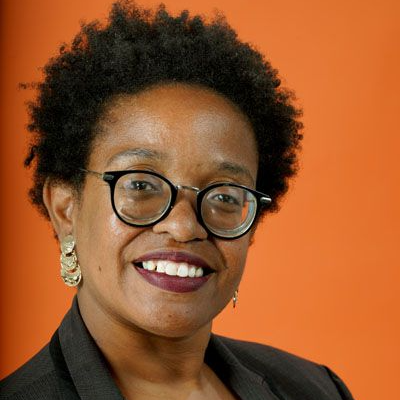When I was growing up as a Baltimore City Public Schools kid, Black history was part of the curriculum, particularly in February. We were taught that icons including Maryland’s own Harriet Tubman, Frederick Douglass and Thurgood Marshall risked everything to secure a future of freedom for African Americans.
“Becoming Thurgood: America’s Social Architect,” the new PBS documentary produced by Maryland Public Television, is both a profound and disquieting experience as it becomes clear that many of the freedoms Marshall fought for, both as an attorney and the nation’s first Black Supreme Court justice, are still under attack.
That dark past, frighteningly, looks like a regressive future.
“We hope to provoke conversation around the price we have to pay to open up democracy to all, and to maintain that openness,” said Travis Mitchell, co-executive producer of “Becoming Thurgood,” now available to stream on MPT’s website video player, PBS.org and the free PBS app.
As journalist Wil Haygood says in the special, Marshall was “legally speaking, one of the founding fathers” as far as the rights of Black people are concerned, beginning with his time as the chief legal council of the NAACP’s Legal Defense Fund. Arguably, his best-known achievement was winning Brown v. Board of Education, leading to the desegregation of American public schools.
But his importance goes beyond that landmark case, said Mitchell, who is also MPT’s senior vice president and chief content officer. The title of the documentary refers to its focus on Marshall’s foundation before his historic Supreme Court career, including his journey from Baltimore to the NAACP. By including audio clips in the film of Marshall telling his own story in his own words, Mitchell is hopeful that the late justice might seem like more than just an austere elder in a black robe, or the man the airport is named after.
Read More
“What blanks are often not filled is how people became the icons that they are,” Mitchell said. An important part of Marshall’s story was his time in undergrad at Lincoln University in Oxford, Pennsylvania, and Washington, D.C.’s Howard University for law school — making the doc a perfect fit to premiere during MPT’s HBCU Week. Mitchell, a Morgan State University graduate, founded the week to highlight the importance of historically Black educational institutions and the indelible achievements of their graduates.
Marshall’s time at Lincoln, which was located very close to a Ku Klux Klan stronghold, was part of his awakening to racial injustice after being raised in an all-Black Baltimore existence. The film highlights an incident in which Marshall and his college classmates voted against the school hiring more Black faculty because even these bright young students had absorbed the anti-Blackness of their surrounding community.
“It’s hard to recognize Black excellence if you are not taught it,” Mitchell explained. The HBCU experience is in part learning to pinpoint and hone such excellence. “In the safe confines of the campus, students can recognize who they were meant to be. It shows our own way of finding our higher selves,” he said. ”We were fighting for a future that was uncertain." Even with the legal wins of the past, “see where we are today. It’s [still] not as clear-cut.”
Before watching “Becoming Thurgood” this week, I revisited “Marshall,” the 2017 Reginald Hudlin film starring the late Chadwick Boseman as the legal legend. In it, he fights to save a Black man (Sterling K. Brown) accused of raping the rich white Connecticut woman he works for (Kate Hudson). It’s based on a real case, among “these other extremely important cases that didn’t get the notoriety,” Mitchell said. “He [Marshall] had a willingness to be the defense attorney to those whose rights had been infringed upon.”
One of the failings in the way that I and so many others have been taught history is the emphasis on the passing of laws — as if the pounding of a gavel solved everything — without addressing the resistance to changes by those who fought for them.
Mitchell said Marshall realized that after the success of Brown v. Board of Education, the focus was on “how much the response would be to block the enforcement of the law. This resulted in a collaborative effort on every front to realize the progress that they had made.”
With that progress being eroded as I write this, I asked what Justice Marshall might make of our startling current American moment.
“I think he would say that we have to remain vigilant,” Mitchell said. “What these times remind us of is that either we all exercise our civil duty to be educated on what’s happening and fully participate in democracy, or allow complacency to cause these rights and freedoms to be eroded if we stand idly by.”






Comments
Welcome to The Banner's subscriber-only commenting community. Please review our community guidelines.